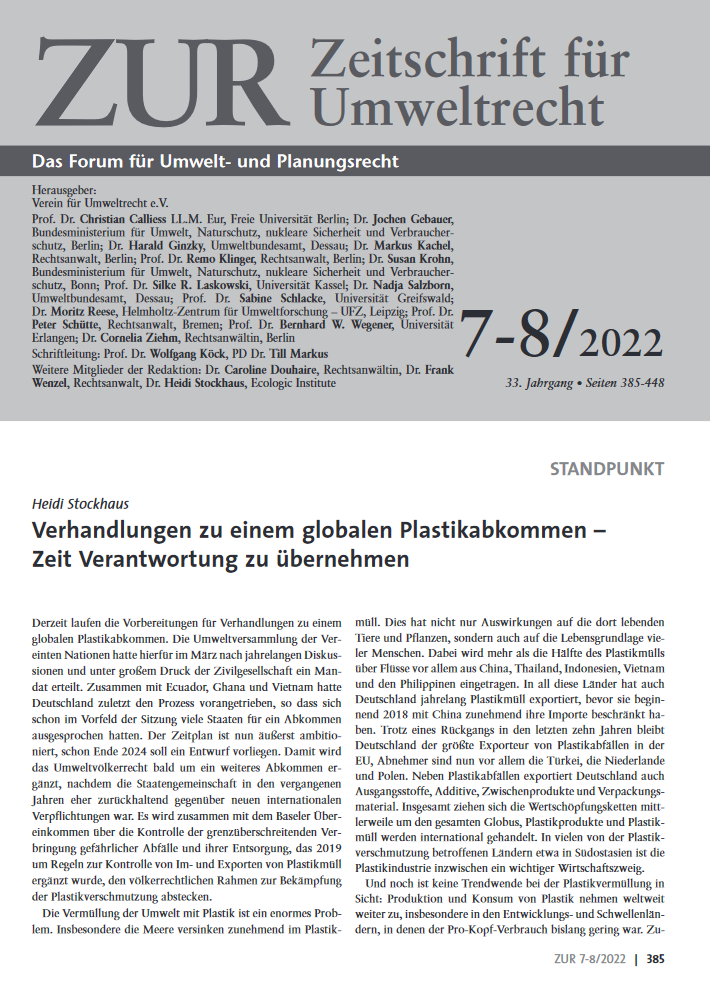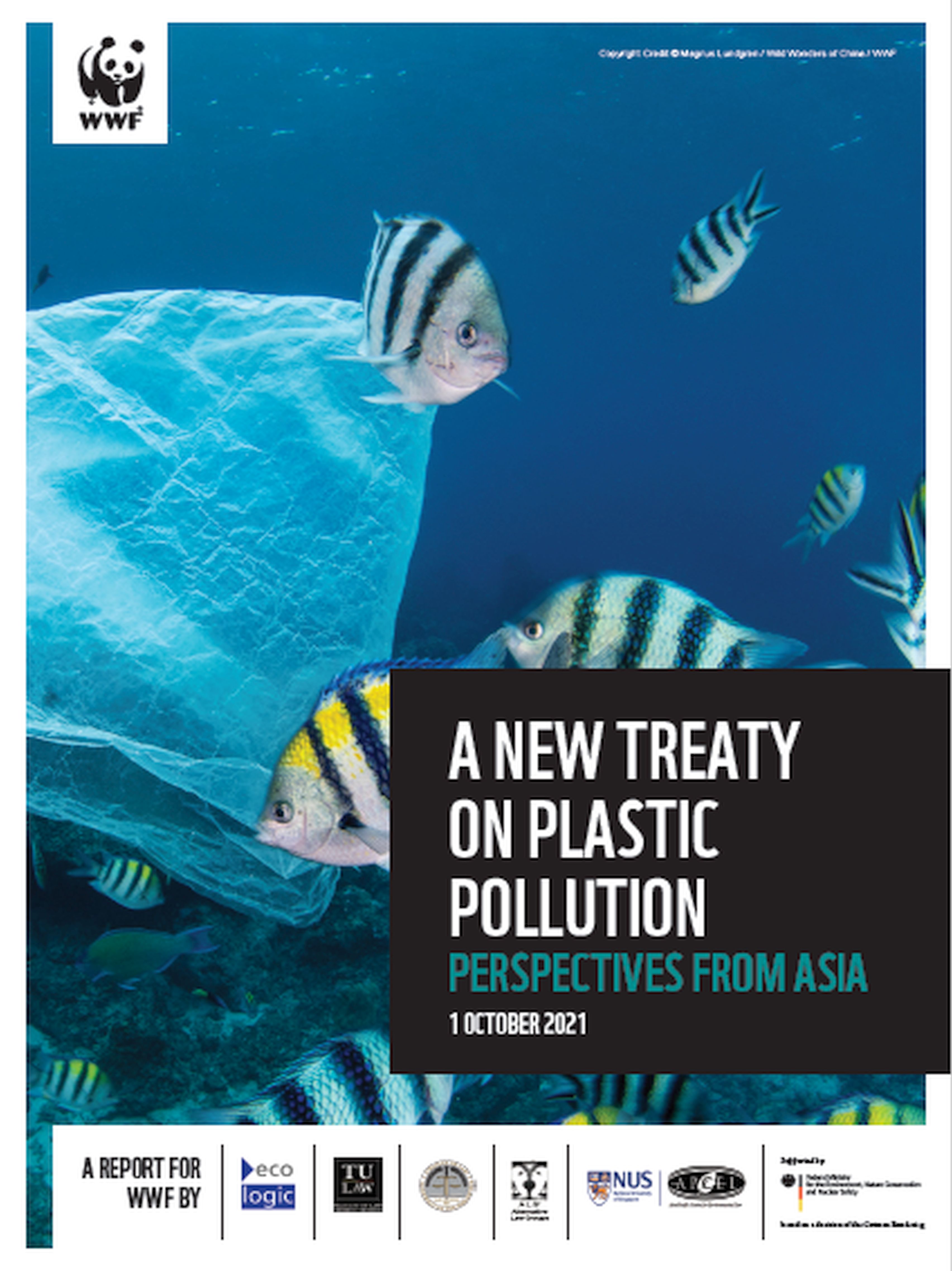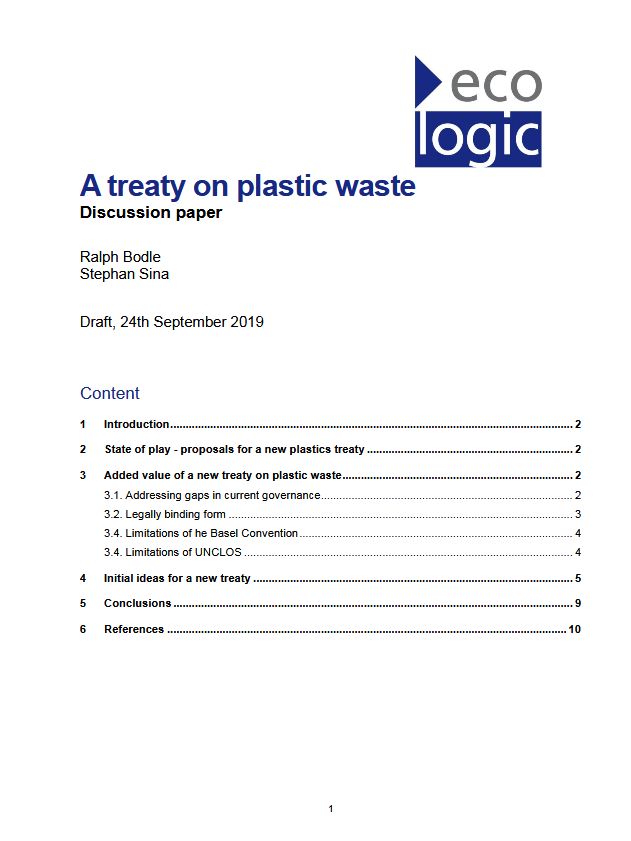Plastic pollution has become one of the most pressing environmental issues. Calls for a global treaty to tackle plastic pollution have increased over the last years, discussions will continue at the next sessions of the UN Environment Assembly in February 2022. After the Ad Hoc Open-Ended Expert Group on Marine Litter and Microplastics concluded its work in November 2020, various countries have started to prepare positions and forge alliances in preparation of these pending discussions.
In this project set up by the World Wide Fund for Nature (WWF), Ecologic Institute focuses on the Asian perspective by identifying regional needs and challenges as well as possible negotiation positions in regard to marine plastic pollution. The project will also point out opportunities of a global treaty and possible next steps for national governments.
To this end, Ecologic Institute together the Alternative Law Group Philippines, the University of Philippines, the National University of Singapore and the Thammasat University Thailand will gather information from governments across Asia. This input will be used to draft a report which is due to be published in autumn 2021. The report will focus on possible objectives, principles and instruments of a global treaty and will highlight the Asian perspective.
Challenges of plastic pollution
Plastic pollution is a global problem – once caught up in ocean currents, plastic waste can be transported around the world. Most of the plastic waste in oceans flows from land. As a result of international trade with plastic waste to countries with inadequate waste management, some regions – including the Asian region – are more impacted by the global plastic pollution crisis. To eliminate the marine litter, all phases of the plastic life cycle need to be addressed.
Looking to Asia, the situation is rather diverse and has changed considerably in recent years. After China announced an import restriction for plastic waste in 2017, the EU shifted its export to other countries in Asia. Vietnam and Thailand have followed and announced similar import restrictions in 2018. On the other hand, South Korea, the country with the highest plastic consumption per capita in Asia, has restrictions on plastic export in place while Japan is one of the leading plastic waste exporters with a considerable amount being sent to other Asian countries.
Debate around a global treaty
It has been widely recognised that the global plastic pollution crisis can only be solved holistically and comprehensively through a legally binding global agreement, complementing and leveraging existing national, regional and voluntary international initiatives. In 2017, the UN Environment Assembly established the Ad Hoc Open-Ended Expert Group on Marine Litter and Microplastics. It looked, among others, into various response options at different levels, with technical experts converging around the growing support for a legally binding global agreement as a way forward.
Support for a new global treaty to tackle the plastic pollution crisis is growing. Various countries – and even the private sector – have expressed their support. At the next session of the UN Environment Assembly which will take place in February 2022, many countries are expecting to secure a negotiation mandate to start the commencement of discussions around the design of this treaty. It is therefore time for countries to identify their needs, prepare positions and to join forces. Countries from Asia can lead by example, especially considering their diversity.
About the WWF project
To be effective, a new global treaty will need to take into account the needs, perspectives and challenges of governments in Asia. To achieve this, Ecologic Institute is embarking on a participatory project together with the Alternative Law Group Philippines, the University of Philippines, the National University of Singapore and the Thammasat University Thailand to gather valuable perspectives from governments across Asia regarding needs, challenges and positions on plastic pollution.
The project has been set up by WWF along with its various offices in Asia to mobilise countries in the region to take a leading role internationally in the run-up to the next session of the UN Environment Assembly in February 2022 in securing a new legally binding global agreement. It is supported by the German Federal Ministry of Environment (BMU).
The input from Asian governments will be used to draft a report which is due to be published in autumn 2021. The report will focus on highlighting the Asian perspective in relation to possible objectives, principles and key elements of a global treaty and contribute as inputs into the global process on how to design an effective global treaty.






